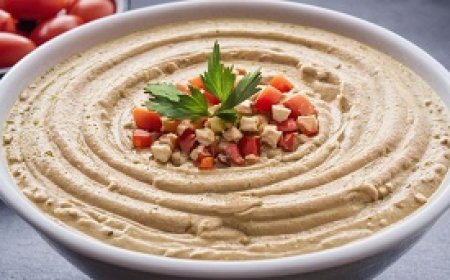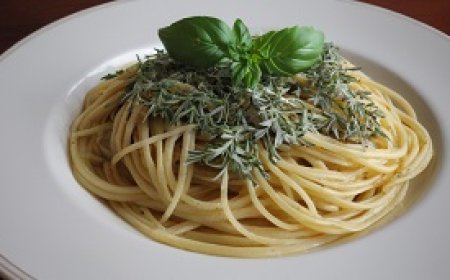Foods that help boost immunity
Foods rich in vitamins and minerals such as fruits like oranges and strawberries, vegetables like spinach and broccoli, and nuts like almonds and walnuts, along with protein-rich foods like meats and fish, are nutritional elements that enhance the immune system and bolster its ability to fight diseases and infections.

Foods rich in vitamins and minerals such as fruits like oranges and strawberries, vegetables like spinach and broccoli, and nuts like almonds and walnuts, along with protein-rich foods like meats and fish, are nutritional elements that enhance the immune system and bolster its ability to fight diseases and infections.
Foods that help boost immunity
Boosting immunity is the process of enhancing and improving the immune system's ability to fight diseases and infections. The immune system is an essential part of the human body that protects it from external attacks and diseases. Immunity can be strengthened by consuming specific foods that contain essential nutrients such as vitamins, minerals, and antioxidants. Among these foods are fresh fruits and vegetables like oranges, strawberries, spinach, and broccoli, which contain vitamin C, other vitamins, and minerals like zinc and selenium that promote immune system health. Additionally, nuts such as almonds and walnuts contain protein and healthy fats that enhance the body's ability to fight infections. Immunity can also be boosted by consuming probiotic-rich foods, such as natural yogurt and fermented vegetables, which promote the growth of beneficial bacteria in the digestive system, thereby enhancing immune system health. Therefore, following a balanced diet containing these nutrient-rich foods that boost immunity is an important step in maintaining good health and resisting diseases and infections.
Nutritious foods to enhance immunity
Nutritious foods that help boost immunity play a crucial role in improving and enhancing the immune system's health. These foods include a diverse range of nutrients that provide the vitamins and minerals needed to maintain a strong and effective immune system.
1. Fresh fruits: Fruits are rich sources of vitamin C, fiber, and antioxidants that help boost the immune system. Oranges, strawberries, berries, and kiwi are among the fruits rich in these nutrients.
2. Dark leafy vegetables: Vegetables like spinach and kale contain high amounts of vitamins A and C, magnesium, and zinc, which enhance and strengthen the immune system.
3. Nuts and seeds: Nuts and seeds provide rich sources of healthy fats, protein, fiber, and minerals such as zinc and selenium, which play a vital role in supporting and boosting the immune system.
4. Protein-rich foods: Lean meats, fish, eggs, beans, and lentils contain essential proteins for building and strengthening tissues and defensive cells in the immune system.
5. Healthy dairy products: Milk, yogurt, and cottage cheese are good sources of calcium, protein, and probiotics, which enhance immune system health by promoting beneficial bacteria in the digestive system.
6. Honey and herbs: Honey and herbs are natural sources of anti-inflammatory and antioxidant compounds, which boost the immune system and help fight infections.
7. Whole grains: Whole grains contain fiber, vitamins, and minerals that promote healthy digestion and strengthen the immune system.
By choosing the right foods and incorporating them into the daily diet, the immune system can be effectively improved and enhanced, helping prevent diseases and infections and improving overall health.
Strengthening immunity with nuts
Nuts provide a variety of important nutrients that can help strengthen the immune system. Nuts such as almonds, walnuts, pistachios, hazelnuts, and cashews contain a diverse array of vitamins, minerals, and healthy fats that play a crucial role in supporting immune system health.
One of the key nutrients found in nuts is protein. Proteins are essential components of the immune system, helping to build and strengthen tissues and defensive cells in the body. Additionally, nuts also contain essential fatty acids such as omega-3 and omega-6, which play a significant role in regulating and stimulating immune cell activity.
Furthermore, nuts are rich in many immune-boosting vitamins and minerals, such as vitamin E, selenium, and zinc. These vitamins and minerals act as antioxidants, helping to combat free radicals that may lead to inflammation and cell damage.
Given these nutritional benefits, consuming nuts can be considered an important part of a balanced diet aimed at strengthening the immune system. However, nuts should be consumed in moderation as they are also high in calories, and excessive consumption may lead to weight gain.
Protein in immune system strengthening
Protein plays a crucial role in strengthening and supporting immune system health. Protein is considered a building block for the body's defensive cells such as antibodies and lymphocytes. Its role in immune enhancement lies in promoting the growth and development of immune cells and enhancing their ability to fight infections and diseases.
Sources of protein include meats, poultry, fish, eggs, dairy products, legumes, and nuts. By including sufficient amounts of protein in the diet, this can lead to a general enhancement of the immune system.
Proteins contain important amino acids known as "body builders," which play a significant role in repairing and building tissues and cells, including immune cells. Additionally, proteins boost the production of antibodies and cellular immunity, which help fight infections and diseases.
Animal protein sources such as meat and fish provide protein in high proportions and contain all essential amino acids. On the other hand, plant protein sources like beans, lentils, and chickpeas provide protein along with fiber, minerals, and other vitamins that promote overall health and consequently strengthen the immune system.
Therefore, it's important to include sufficient amounts of protein in the daily diet to enhance the immune system and ensure overall health maintenance.
Foods rich in vitamins to boost immunity
Exploring the health benefits of vitamin-rich foods is an essential part of immune system strengthening and overall health promotion. Vitamins are key nutrients that contribute to supporting and enhancing the body's immune system, playing a crucial role in stimulating immune response and fighting infections and diseases.
1. Vitamin C (Ascorbic Acid): Vitamin C is one of the most powerful antioxidants, helping to boost antibody production and enhance immune cell function. It is abundant in fruits such as oranges, lemons, strawberries, and kiwi.
2. Vitamin A (Retinol): Vitamin A plays a vital role in supporting the function of mucous membranes in the body, which are the first line of defense against infection. Vitamin A is mainly found in green leafy vegetables such as spinach and kale.
3. Vitamin E (Tocopherol): Vitamin E is a potent antioxidant that helps protect cells from damage caused by free radicals, thereby enhancing immune system function. Vitamin E is primarily found in plant oils and nuts such as almonds and hazelnuts.
4. Vitamin D: Vitamin D plays an important role in regulating and enhancing immune system function, activating various immune cells. Vitamin D can be found primarily in fatty fish and vitamin-fortified milk.
5. Vitamin B6 and B12: Vitamin B6 and B12 play a crucial role in supporting immune system function and stimulating antibody production. Vitamin B6 is found in leafy vegetables and whole grains, while vitamin B12 is primarily found in animal products such as meat and fish.
By regularly including these vitamin-rich foods in the diet, the immune system can be effectively improved and enhanced, contributing to disease prevention, infection prevention, and overall health promotion.
Boosting immunity with minerals
Boosting immunity with minerals is considered an essential part of maintaining immune system health and enhancing its ability to fight diseases and infections. There are many foods that can be included in the diet to provide the necessary minerals for strengthening the immune system.
1. Zinc: Zinc plays a crucial role in supporting immune system function by helping to activate immune cells and regulate their response to infection. Zinc is primarily found in red meat, poultry, fish, and legumes such as lentils, chickpeas, and beans.
2. Selenium: Selenium is a potent antioxidant that helps protect cells from damage caused by free radicals, thus enhancing immune system function. Selenium is mainly found in fish, seafood, and nuts such as sesame seeds and almonds.
3. Iron: Iron is essential for the production of hemoglobin in the blood, which helps transport oxygen to cells and stimulate immune system function. Iron can be found in red meat, poultry, fish, legumes, and whole grains.
4. Copper: Copper plays an important role in blood cell production, tissue formation, and supporting immune system function. Copper-rich foods include fish, seafood, nuts, seeds, and whole grains.
5. Magnesium: Magnesium is essential for various bodily functions, including immune system function. Magnesium can be found in dark leafy vegetables such as spinach and kale, nuts and seeds, and whole grains.
By choosing foods that are rich in these minerals and regularly incorporating them into the diet, immune system function can be effectively enhanced and strengthened, helping to prevent diseases and promote overall health.
Improving immune system health through daily foods
Enhancing immune system health through daily foods is an essential part of overall health care and disease prevention. By following a balanced diet and incorporating a variety of nutrient-rich foods, the immune system can be effectively boosted and strengthened.
1. Fresh fruits and vegetables: Fresh fruits and vegetables contain a variety of vitamins, minerals, and antioxidants that promote immune system health. For example, oranges and kiwis are rich in vitamin C, while spinach and kale contain vitamins A and K and minerals like iron and calcium.
2. Healthy proteins: Protein plays a vital role in building and strengthening cells and tissues, including immune cells. Good sources of protein in the diet include lean meats, fish, eggs, beans, and nuts.
3. Whole grains: Whole grains provide dietary fiber, vitamins, and minerals that promote overall health and strengthen the immune system. Brown rice, oats, whole-grain bread, and whole-grain pasta can be included in the diet.
4. Healthy fats: Healthy fats such as omega-3 fatty acids found in fatty fish like salmon and tuna offer significant benefits for enhancing immune function and reducing inflammation.
5. Fermented foods: Fermented foods like natural yogurt and fermented vegetables contain beneficial bacteria that enhance and strengthen immune system health.
By regularly incorporating these foods into the daily diet, the immune system can be significantly enhanced and strengthened, helping to prevent diseases and improve overall health.
Summary
Strengthening the immune system is crucial for maintaining overall health and preventing diseases and infections. Effectively boosting the immune system can be achieved by including a variety of nutrient-rich foods in the daily diet. These foods include fresh fruits and vegetables containing important vitamins and minerals such as vitamin C, A, E, zinc, and selenium. Additionally, good sources of protein such as meats, fish, legumes, whole grains, and nuts, which contain protein and essential fatty acids, should be included. By choosing healthy and balanced foods, the immune system can be effectively enhanced and strengthened, contributing to disease prevention and promoting overall health.
sources
1. Centers for Disease Control and Prevention (CDC)
- The CDC provides advice and guidance on how to improve your diet to support immune health.
2. Academy of Nutrition and Dietetics
- The website offers tips and information on foods that can be included in the diet to enhance immune health.
3. World Health Organization
- The World Health Organization provides resources on the importance of proper nutrition in promoting adult health and strengthening immunity.
What's Your Reaction?
















































































































